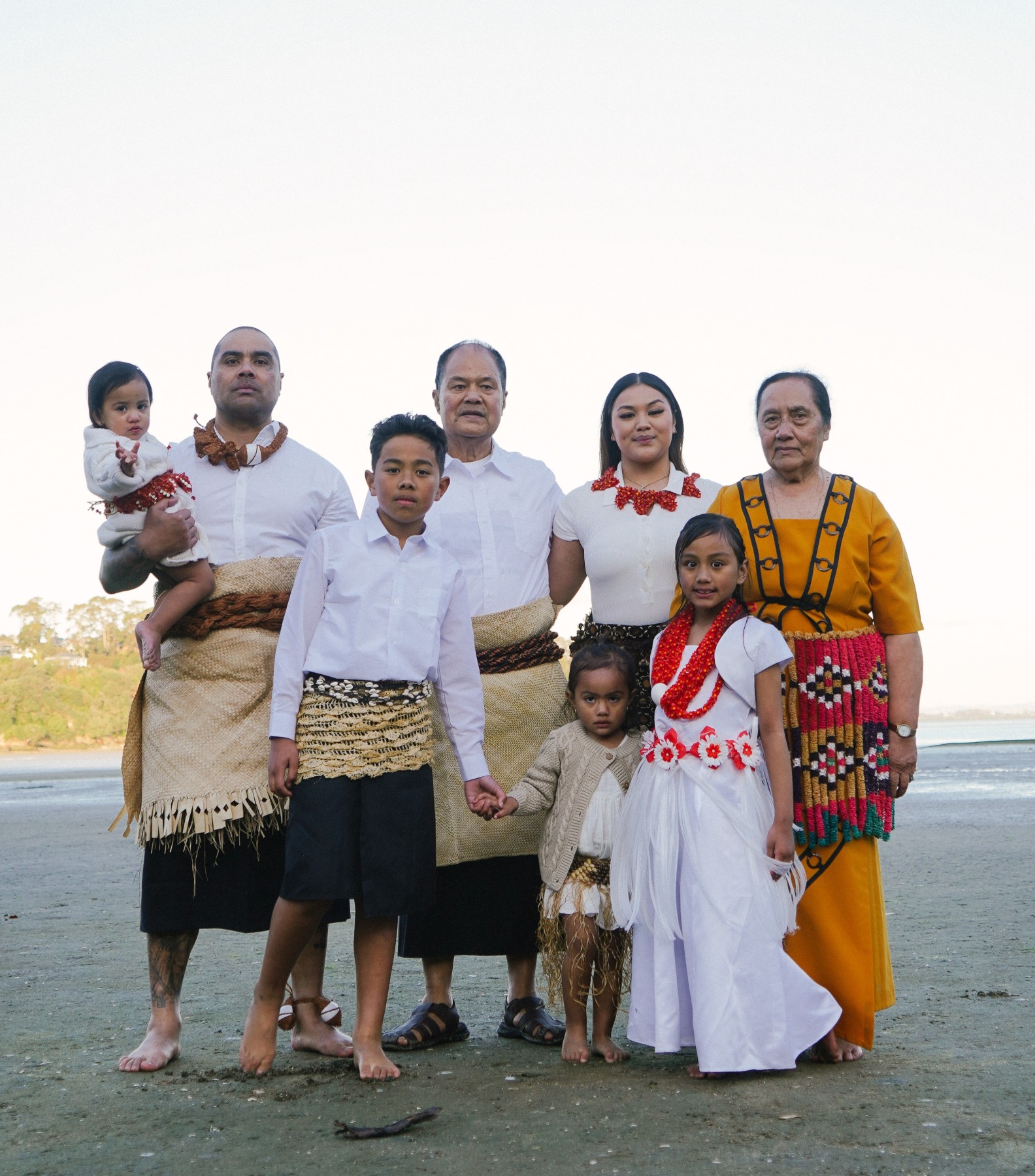My parents Vave Hifo & Priscilla Tausaugafou Hifo moved to Australia from Central Auckland, New Zealand in the early 2000s destined for a better life for their children, giving my siblings & I a childhood full of opportunities that they never had growing up.
I’ll forever be grateful for my parents & the sacrifices they made for the life my siblings & I live today.
Growing up in Northmead Sydney, Australia, my eldest sister & I attended Dundas Child Centre, Yates Avenue Kindy & Northmead Primary School where we made up part of the 3% Pacific population at the time. Often when asked “What race are you?”, 7-year-old me would shrug my shoulders & reply “New Zealander”.
Whilst growing up in Australia was a privilege, it also came with the downside of not fully understanding our culture. Although we didn’t know much, I can vividly remember my dad playing his Tongan mixtapes on the radio which we would hiva (sing) along to without knowing what the words meant or if we were even pronouncing it right. Now that I think of it, it was hiva that pulled my siblings & I closer to our culture.
On Christmas Day in 2015 we made the move to Auckland.
On my first day at school in Auckland, I was speechless seeing so many brown kids in one space but immediately I felt a sense of belonging. At first, I felt like I struggled to fit in as those around me could hold a conversation fluently in their native language, yet I would only know what “Malo e lelei” or “Talofa” meant. Having friends of Polynesian descent was a big change for me yet it allowed me to learn more about my Tongan, Niuean and Samoan culture through them.
When I started at Avondale College, they provided opportunities for students to connect with their culture like joining cultural groups to perform at the annual Polyfest. Each year of high school I joined the Tongan group. Whilst being in the group, it not only helped me form a better understanding of the Tongan culture, but it also helped me learn proper pronunciation and meaning to words. On my last year of high school in 2021, the Avondale College Tongan Group took out first place in both our items; the Lakalaka & Soke.
The adrenaline & hype is one of the things I love most about my culture, especially when we all come together as one for events like our rugby games – take the parades as an example. By the end of college, I felt so embedded in my culture that I was māfana/proud.
A few years after moving to Auckland in January 2017, the year I started high school, our mother passed away. Although this tore me apart, my eldest sister & I knew we had to mature and be there for our youngest siblings, putting aside our grief & emotions in hopes of shielding our two little siblings from reality.
My Grandparents Viliami Hifo & Anamalia Elsie Hifo Namomo, took us in under their wing.
My Pop Vili hails from Kolovai Hihifo, Kolomotua & my Nena Elsie hails from Kolofo’ou, Nuku’alofa. Although losing our mother was a major loss, we’ve learnt to make light of the situation which was creating an unbreakable bond with my grandparents. This is where our journey to learning about our Tongan culture started.
Since moving in with my Grandparents we’ve incorporated traditional Tongan teachings & improved our Lea Fakatonga which we can now hold a basic conversation with one another at api (Home), api lotu (Church) & ngaue (Work).
The theme for Uike Lea Faka-Tonga 2023 is 'E tu'uloa 'a e Lea faka-Tongá 'o ka lea'aki 'i 'api, siasí (lotú), mo e nofo-'a-kāingá, which means the Tongan Language will be sustainable if used at home, church and in the wider community. What stands out to me in this year’s theme is the word “Tu’uloa” which emphasizes the meaning to continuously grow, nurture, and sustain a valued idea, practice, event, or memory in an enduring way. What this means to me is the cultural practice of faiva “dance” which I love to represent my Tongan culture through the traditional tau’olunga at family events.
As of today, I can firmly hold a simple conversation in Lea Fakatonga. This for me is a great achievement in my journey to being more grounded in my identity as a Tongan. My next steps will be to talanoa more with my grandparents, learning more phrases & words to use at home, church and in the wider community.
Although I’m far from maintaining & sustaining my Lea Fakatonga, I’m proud to say I’m Tongan.

